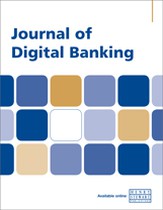The future of cryptocurrency and Blockchain technology in finance
Abstract
Cryptocurrencies have been all the rage in recent years, drawing many to hold them as speculative investment assets. Its proponents also champion the secure and decentralised nature of the technology it is based on, called the Blockchain. Given the secure nature of Blockchain technology, the idea of adopting cryptocurrencies as legal tender currency has also been mooted and experimented with — the most famous example being the Central American nation of El Salvador’s bold move to adopt the cryptocurrency Bitcoin as legal tender in September 2021. In theory, this would provide a solution to the high transaction costs faced by overseas El Salvadoreans when transferring money home and to the lack of bank accounts in the case of 70 per cent of its population — Bitcoin does not require a bank account and can be transferred across borders easily. However, even though individual consumers seem to evince interest in adopting cryptocurrencies as legal tender, most countries have little appetite to do so or to integrate their use into their citizens’ lives. Does cryptocurrency have a future as a legal tender currency or as an investment asset? If not, what are the potential future developments? This paper examines and attempts to answer these questions by (i) analysing the pros and cons of adopting cryptocurrencies as legal tender; (ii) discussing alternative uses for the Blockchain technology behind cryptocurrency; and (iii) reviewing regulatory challenges to cryptocurrency as an investible asset.
The full article is available to subscribers to the journal.
Author's Biography
Wong Wanyi is a postgraduate student, Master of IT in Business, at Singapore Management University. Wanyi has nine years of front and middle office experience in commercial and corporate banking. She holds a Bachelor of Business Administration degree with a double major in Marketing and Management from the National University of Singapore, as well as a Diploma in Business Translation and Interpretation Skills from Nanyang Technological University.
Alan Megargel , PhD, is Associate Professor of Information Systems (Practice) at Singapore Management University, where he serves as Coordinator for the undergraduate Financial Technology Career Track. His current areas of specialisation include enterprise architecture in banking, service-oriented architecture (SOA), payments technology and non-bank FinTech alternative financial services. Alan has 30 years of industry experience, having held positions such as Chief Technology Officer at TIBCO Software Asia, Vice President and Head of SOA at OCBC Bank and Senior Enterprise Architect at ANZ Bank. His banking technology experience covers retail and corporate banking, Basel II, data warehouse, data centre operations and technology infrastructure. Alan holds a Doctor of Innovation from Singapore Management University and a Master of Science in Software, Systems and Information Engineering from the University of Sheffield.
